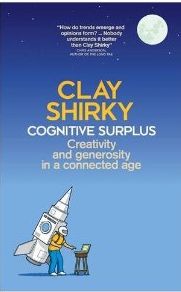I came across the following passage from Dickens’ ‘American Notes’ last night. American Notes is his account of his first visit to America in January 1842, when he was 29 years of age. Based on what I’ve read so far it’s well worth a read. His account of his extremely stormy Atlantic crossing is hilarious. The thought crossed my mind as I read it that, if he were alive today, Dickens could have had a backup career as a stand-up when he wasn’t actually writing novels. (Are there any stand-up comedian novelists, I wonder? And if not why not?)
Anyway, here’s the passage that the Tea Party really wouldn’t like. It’s written as part of a reflection on his visit to Boston and its nearby ‘University of Cambridge’.
‘Above all, I sincerely believe that the public institutions and charities of this capital of Massachusetts are as nearly perfect, as the most considerate wisdom, benevolence, and humanity, can make them. I never in my life was more affected by the contemplation of happiness, under circumstances of privation and bereavement, than in my visits to these establishments.
It is a great and pleasant feature of all such institutions in America, that they are either supported by the State or assisted by the State; or (in the event of their not needing its helping hand) that they act in concert with it, and are emphatically the people’s. I cannot but think, with a view to the principle and its tendency to elevate or depress the character of the industrious classes, that a Public Charity is immeasurably better than a Private Foundation, no matter how munificently the latter may be endowed. In our own country, where it has not, until within these later days, been a very popular fashion with governments to display any extraordinary regard for the great mass of the people or to recognise their existence as improvable creatures, private charities, unexampled in the history of the earth, have arisen, to do an incalculable amount of good among the destitute and afflicted.
But the government of the country, having neither act nor part in them, is not in the receipt of any portion of the gratitude they inspire; and, offering very little shelter or relief beyond that which is to be found in the workhouse and the jail, has come, not unnaturally, to be looked upon by the poor rather as a stern master, quick to correct and punish, than a kind protector, merciful and vigilant in their hour of need.’
Good, isn’t it? (I’m not talking to you, Tea Party members.)
Overall, Charles Dickens was famously unimpressed by the USA but I haven’t read that part yet.
American Notes is available to read free online and if you use the wonderful Calibre software it will send it to your e-reader of choice.





 Here’s
Here’s  Here is Simon Jenkins
Here is Simon Jenkins

 That’s the first sentence of
That’s the first sentence of  I expect that you’re wondering, reader, what happend to the project in Tanzania which I started way back in October ’08 and was which due to restart after a 3 week break. Well I’ve just booked my flights – some four months later – and am looking forward to updating the Habari Tanzania blog I started
I expect that you’re wondering, reader, what happend to the project in Tanzania which I started way back in October ’08 and was which due to restart after a 3 week break. Well I’ve just booked my flights – some four months later – and am looking forward to updating the Habari Tanzania blog I started  OK, chaps – and they are all chaps, aren’t they? – we’ve got the message. It’s going to be really bad. But talk about laying it on with a trowel. Seems to me that every time I check the news headlines someone or other has come out with saying something like ‘ it’s going to be much worst than everyone says it’s going to be’. Statements of this kind have, to my knowledge, been made twice in the last 48 hours. First the CBI said it’s going to be much worse than everyone thinks and now, unbelievably, the Deputy Governor of the Bank of England is saying that the economy is ‘likely to perform much worse than the Bank of England expects’. That’s right. Charles Bean (I’ll avoid the obvious bean counter joke) is,
OK, chaps – and they are all chaps, aren’t they? – we’ve got the message. It’s going to be really bad. But talk about laying it on with a trowel. Seems to me that every time I check the news headlines someone or other has come out with saying something like ‘ it’s going to be much worst than everyone says it’s going to be’. Statements of this kind have, to my knowledge, been made twice in the last 48 hours. First the CBI said it’s going to be much worse than everyone thinks and now, unbelievably, the Deputy Governor of the Bank of England is saying that the economy is ‘likely to perform much worse than the Bank of England expects’. That’s right. Charles Bean (I’ll avoid the obvious bean counter joke) is, 